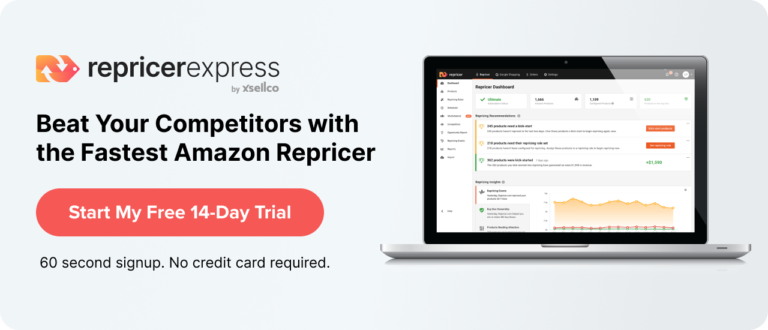Remember the fairy tale about Hansel and Gretel? And how they left a trail of pebbles from their house to the witch’s house so they could find their way? Having profitable keywords on your Amazon PPC campaign is just like that. You want to mark a clear trail for shoppers to your product page so they can find their way quickly and easily. RepricerExpress will show you how to uncover the most profitable ones so you can Hansel and Gretel your way to more sales.
First, Learn the Industry and Category You’ll Be Selling In
I took up golf this year. And by “take up golf”, I mean that I bought a half set of used clubs, a punch card for buckets of balls, a month’s worth of group lessons, and spent a weekend each month at the local driving range.
Before this, I had casually gone to the driving range but always left frustrated because it seemed like everyone else was hitting beautiful shots and my biggest accomplishment was not swinging at air. It turns out I had a lot to learn about the industry, so I started reading and watching videos on how to improve my swing and which clubs were used where.
The same methodology applies to finding profitable keywords to use on your Amazon PPC campaigns. You need to really understand the industry and category you’re selling in, otherwise, you’ll be swinging at air instead of driving balls straight down the fairway.
To help you get there, answer these questions:
- What is the audience profile of people searching for and using these products?
- What time of day (or night) do most searches occur?
- What need do people have for these products?
- What complaints do they have against the products?
Second, Gather Your Tools
There’s no way you should be brainstorming keywords on your own without using powerful tools. For one thing, you’ll probably miss a lot of really competitive ones. And for another, tools can help streamline the whole process, saving you time and energy.
You’ll find keyword research tools all across the price spectrum, from absolutely free to a little pricey. The free ones, while solid, do tend to limit the amount of data you can access, while the paid ones offer a lot more. The choice is totally up to you.
Here are some of the top names you should be looking at:
- Google Keyword Planner. It’s free and straightforward to use, but you do need to set up a Google Ads account first. The nice thing about this tool is it’s aimed at PPC campaign users.
- Keyword Tool. This one’s awesome in so many ways. Above the search bar are tabs you can select for which marketplace you want to do keyword research for, plus a dropdown menu to the right where you can select your language. Once you type in your keyword, it’ll take you to a page with all the suggested keywords. The downside is you have to subscribe to the pro version to access search volume, trend, CPC and competition.
- AMZ Tracker. This is one of the paid tools out there (you can start off with a free 7-day trial), but also one of the best-known names, too — and for good reason. Not only can they help you find the most profitable keywords, but they also let you track your competitors so you can react right away if and when they make a noticeable, good change.
- AMZScout. Another paid tool, you have the option of a monthly or lifetime subscription, both of which start with a free trial. It lets you see keywords’ rank, page, position and competitors, as well as how keywords change over time.
- MerchantWords. This periodic table-styled keyword search tool, with a monthly or annual subscription, gives you access to regular search with volume, seasonality and depth; reverse ASIN lookup with data on competitors; the ability to create collections; a one-year view on search history; keyword multiplier; and live product data straight from Amazon’s first page of search results.
- SEMrush. Unless you’ve been living under a rock, you’ve no doubt heard of this powerhouse. It’s also a paid tool, but well worth whichever subscription package you use. Not only can you dig up dirt on keywords and competitors, but you can track entire domains as well.
Third, Use Amazon Like a Buyer
Lastly, visit Amazon and pretend you’re searching for products. The neat thing about Amazon’s search is their auto-complete function, which will give you a ton of insight into what other people are searching for.
This method is going to be more time-consuming than having a tool do the work for you, but it’s free and shows you the most popular searches going on currently.
Final Thoughts
Uncovering the most profitable keywords to use on your next Amazon PPC campaign should be a work of formulaic science. You don’t have to totally ignore your gut, but you also shouldn’t let it lead the way, either. Look at the data in front of you and run with that. Once you’ve got the right search terms under your belt, take things to the next level with RepricerExpress so you can price your well-worded products as competitively as possible. Plus, when you sign up right now, you get to enjoy a free trial first.



